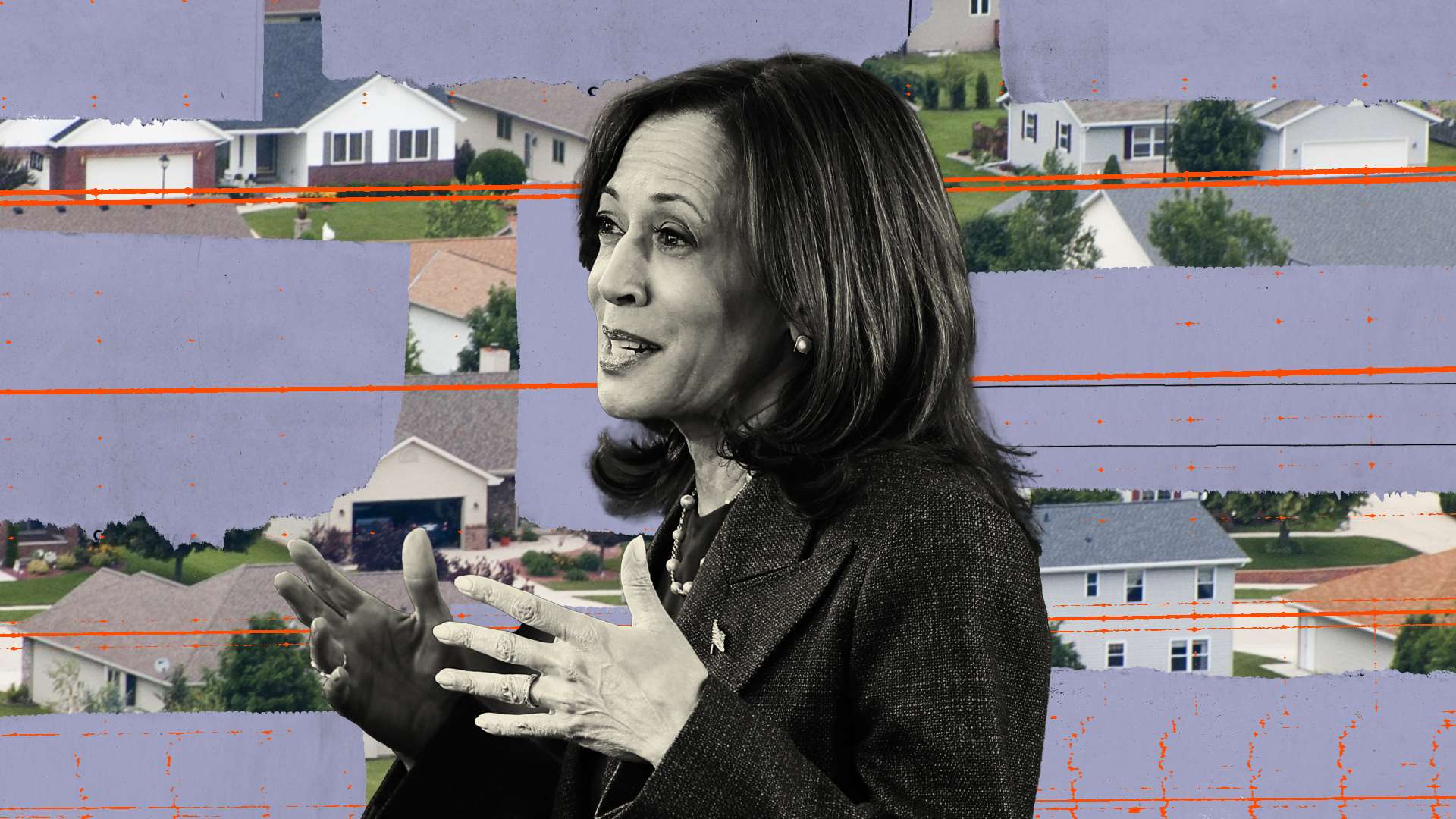In the final days of the presidential election, President-elect Donald Trump never missed a chance to tie his opponent to California. It was a critique that required no elaboration—though true to form, Trump didn’t shy away from providing an overheated one. At his Madison Square Garden rally in October, he proclaimed that Vice President Kamala Harris was a “radical-left lunatic” who “destroyed California.”
Breathless rhetoric notwithstanding, it is a problem for national Democratic ambitions that California—the state most associated with the party’s rule—is now synonymous with the top issue of the election: the rising cost of living.
For the first time in recent memory, housing costs emerged as a major presidential election issue. (Experts agree that it’s the last major driver of inflation.) And while Harris promised to oversee the construction of 3 million homes over her term, that wasn’t enough to shake the California stigma.
As of 2024, California has the most expensive housing of any continental U.S. state, with a median home price that is more than eight times the state median household income. (A healthy ratio is considered between three to five times the state median income. The ratio in Texas is four.) As a result, working- and middle-class Californians have virtually no path to homeownership.
Locked out of homeownership, half of California renters spend at least a third of their income—for many, up to 50 percent—on rent. And they’re the lucky ones: Nearly 200,000 Californians and counting are homeless.
On some level, rank-and-file Democrats understand that the state is a problem. Ask a progressive in swing states like North Carolina or Wisconsin what she thinks about California, and she will likely try to change the topic of conversation. (Could you imagine a conservative having the same reluctance about Texas?)
Where millions of Americans—myself included—once knew California as a place where friends and family went off and claimed their slice of the dream, the Golden State is today better known as the source of embittered migrants making cash offers on homes.
Over the past 25 years, hundreds of thousands of people have voted with their feet and left the state. Sluggish population growth over the 2010s led California to lose a congressional seat after the 2020 reapportionment. (On net, red states picked up three seats in that election.) Amid declining immigration, the state has started losing population for the first time in history.
In 2022 alone, an estimated 102,000 Californians moved to Texas. They weren’t fleeing the perfect weather or the high-paying jobs—by and large, they were pushed out by the cost of living.
Occasionally, California’s progressive NIMBYs celebrate this unhappy exodus as a way of flipping other Mountain West states blue. Yet this year, Nevada voted for a Republican presidential candidate for the first time in 20 years. Even before the election, the polls acknowledged that Arizona was a lost cause for the Democrats.
It turns out that forcing people to abandon their home state in search of an affordable home doesn’t exactly engender party loyalty. Indeed, it may be having the opposite effect: Surveys out of states like Texas suggest that new arrivals from California might actually be more conservative than the locals.
Of course, Kamala Harris isn’t the reason California has a housing crisis. Democrats aren’t even solely to blame—the zoning that has made it illegal to build housing in California has been backed by NIMBYs of the right and left, and it was Republican Gov. Ronald Reagan who signed the state’s infamous environmental review act into law.
But the state has been under Democratic supermajority control since 2011. Outside of the unusual case of former Gov. Arnold Schwarzenegger, a moderate Republican who backed Harris for president, they have effectively run the state since 1999. The undecided voter might be forgiven for wondering why this issue has only gotten worse under a quarter century of Democratic governance.
Immediately after the election, Democratic Gov. Gavin Newsom—who has made no secret of his presidential ambitions—called for a special session to address how California will respond to anticipated attacks on reproductive rights, immigrants, and the state’s climate policies by the Trump administration. The proclamation makes no mention whatsoever of the cost-of-living issues that likely handed the election to Trump.
There is a small but growing cadre of pro-housing Democratic state legislators who have taken up the cause of cutting through the red tape and getting California building again. And they’ve had some successes: Since 2017, the state has legalized granny flats, abolished parking mandates, and streamlined permitting. But all too often, reform efforts have been stymied by members of their own party.
It’s too late for Kamala Harris. But the next Democratic nominee for president had better hope those reformers are successful.


